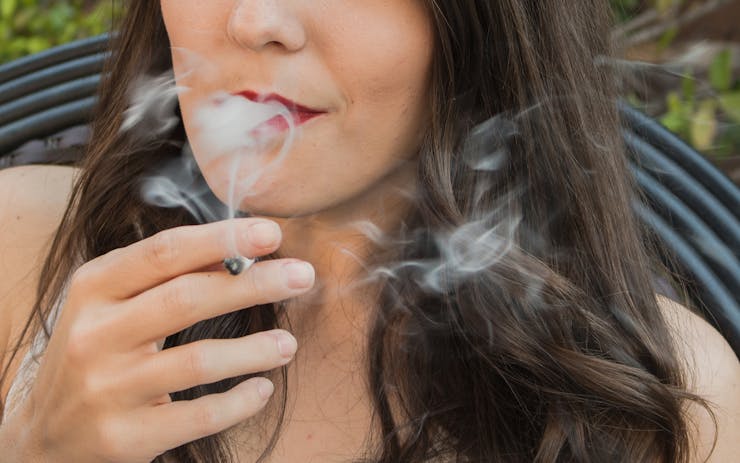In November 2016, Denver voters approved a measure to create the nation’s first licensing program to allow social cannabis consumption. That law directed the city to create a four-year pilot program to allow some businesses to create discreet, 21-and-older areas where patrons can consume their own cannabis.
On Thursday, officials with the Denver Excise & Licenses Office unveiled draft regulations, giving an indication of what onsite consumption might actually look like. The upshot? Alcohol won’t be allowed to mix with cannabis consumption; patrons will have to show ID and sign a waiver; and venues will have to provide “evidence of community support” before being issued a license.
The plan could establish venues similar to Amsterdam’s famous coffeeshops, as well as allow special events to include on-site cannabis consumption. The rules are expected to finally offer residents and visitors a legal place to enjoy cannabis that isn’t a private residence.
What’s next? City officials will hold public hearing on the proposal at 5:30 p.m. on June 13, on the fourth floor of the Wellington E. Webb Municipal Office Building near Civic Center. Applications are currently available at the Excise & Licenses office, although applications won’t be accepted until the final regulations are formally adopted.
Denver’s social consumption regulations and the permitting process exist separate from the State of Colorado’s proposal to regulate social consumption rules—a proposal that was shot down in the state Legislature last month.
Requirements for a Permit
Consumption areas will need to have “evidence of community support” in order to receive a permit. That evidence can include a number of things: a letter from a neighborhood organization, a so-called good neighbor agreement, or another form of community support that officials deem sufficient. Applicants will also need to file a community engagement plan.
Rule #1: No booze. Alcohol consumption will be banned in Denver's permitted cannabis consumption venues.
Venues will need to deal with the material side-effects of consumption: smell, airborne contaminants, as well as leftovers like ash and roaches. To that end, applicants are required to submit a waste plan, an odor control plan, and a ventilation plan (for indoor consumption).
Borrowing a bong? Applicants must file a plan detailing how cannabis consumption accessories are sanitized and cleaned.
Special event permits are capped at 10 days per year. An entity seeking to allow social use at a special event can only be granted a permit for a total of 10 days per year. That would presumably allow open consumption at large-scale cannabis competitions.
Where Permits Are Not Allowed
No permit will be issued for a venue that is within 1,000 feet of a school, child care establishment, alcohol or drug treatment facility, or city-owned rec center or outdoor pool.
Permits may be issued for premises that currently hold a liquor license only if alcohol is not being served while the cannabis-permitted event is operating.
Permits may not be issued for currently-licensed cannabis establishments (“Licensed Marijuana Establishments”) including retail stores, grow rooms, and processing facilities.
No permits will be issued for property owned by the City of Denver, and/or public property. In other words: No parks or street fairs.
Permits will not be issued for venues in neighborhoods zoned as residential.
Security Requirements
Club owners and event organizers must hire security personnel to monitor all entrances to the venue at all times when the location is being used for cannabis consumption.
The age of all patrons (21+) must be verified with government-issued ID before they’re allowed into the venue.
DCA venue owners and managers will complete an NCIC background check, including fingerprinting.
All patrons entering a DCA-licensed venue must sign an acknowledgment that declares that the patron is responsible for his/her own actions, will consume responsibly, will not drive impaired, and will not sell or distribute marijuana for remuneration.
Advertising Limits
Advertising that’s misleading, deceptive, or false is not allowed. Neither are ads that are designed to appeal to minors.
Billboards, sidewalk signs, and any publicly visible advertising of any kind is prohibited. Handing out flyers in a public place is not allowed
What is allowed? Advertising inside a licensed marijuana establishment, such as a retail cannabis store. That’s OK. A fixed sign identifying a location as a Designated Consumption Area, “which exists solely for the purpose of identifying the location as a DCA,” is allowed. Newspaper and magazine ads are allowed. Advertising that’s limited and purely incidental to sponsorship of a charitable event is allowed.
General Rules to Remember
Even in a permitted space or at a permitted event, cannabis consumption may not be visible to members of the public from a public place. So if you stand on a sidewalk and see people smoking or vaping, that license holder is violating the rules.
If you’re operating a permanent DCA club or a permitted event, do not grow, process, manufacture, store, sell, or distribute cannabis for remuneration anywhere on the premises. That’s against the law. Note: Offering a passed joint to your neighbor is allowed. That would be distributing without remuneration.
At any permitted venue or event, the limit on personal possession is one ounce of cannabis leaf, eight grams of cannabis concentrate, or 80 ten-milligram servings of marijuana-infused product.
The use of LPG torches (propane or butane) is prohibited within the licensed premises. In other words: Dabbing torches are a no-no (but e-nails might be OK).
Again (and this is key): No alcohol! These permits are for cannabis only. Want to bring your own? Don’t. The licensing rules prohibit the consumption of alcohol in any form.
Owners, managers, and employees of the venue may not consume cannabis in any form while working.





